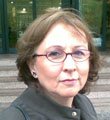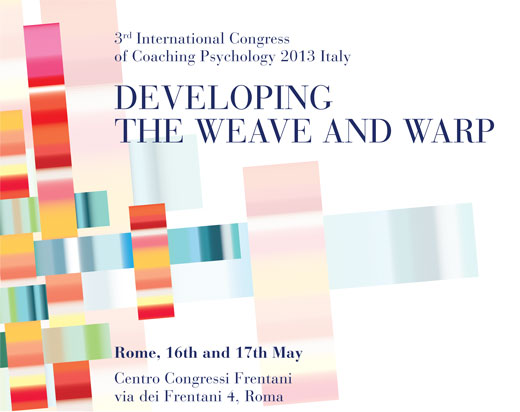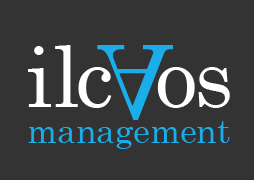The Congress Chronicle: “Developing the Weave and Warp”
3rd International Congress of Coaching Psychology - Italy

The congress was held in Rome, 16th and 17th May. While I was walking to reach the place, the beatiful, sunny and hot Rome was under grey clouds, with an unpleasant and sad rain. After so many years of London the rain doesn't bother me at all, but the sadness and unpleasant feeling, yes, it does. Unfortunately, at the moment, is as the whole county is mostly grey and sad, the economic crisis and the political difficulties the country is experiencing almost led to a paralysis of organizational activities and companies, from the largest to small and medium - which are in this country the most - they are like hanging in the air waiting for something or someone to take them to the productivity, growth, and development.
This is why the congress "Developing the Weave and Warp" it seemed, and I'am sure it was, a breath of fresh air and a sharing window with Europe and the rest of the world. The SCP Italy (Society for Coaching Psychology Italy), Italian partner of ISCP (International Society for Coaching Psychology) has done a marvellous job but the best of it has been the joy, the enthusiasm they had put to do it and these has been sensed in the atmosphere through the two days of congress.
The discipline of Psicology Coaching is relatively new and the opportunities for meetings and exchanges active in the community are vital to its development. For two days you are "twisted wires" showing a glimpse of a fabric composed of many different experiences. Theory and practice were shared, stories and tools to deal with this world in the best way.

Congress's Chronicle
First day 16/05/2013
After the warm welcome address by Dr. Silvana Dini, President of SCP Italy, we have listened with pleasure by authoritative Prof. Stephen Palmer and Prof. Sarah Corrie (UK) "An international perspective on the development of coaching psychology as a profession and evidence-based discipline." Palmer has described, among other things, how it has changed over the last ten years the way of approching the psichological coaching; how Skype, e-mail, video are making the diference to do it. The analysis of Corrie made us enter directly into the need to be able to give real recognition of psychology coaching based on research, experience, on the evidence put together taking into account the rapid expansion of the discipline.
The intervention "What must leaders need to do to cope with complexity" of Prof. David Lane (UK) was the most interesting for me, for clarity, sympathy and irony of Prof. Lane and let's face it, for his concept of chaos, very dear to us. According to Lane actuality is very complex and you can not address the problems of today's organizations with the solutions of the past. You have to understand context for the behavior of the leader. We must help people to appease the anguish and bring in the best out of the chaos, trying a different meaning. He spoke about purpose, mindfulness, perspective taking capacity, positivity illustrating in short time some case stories.
Following Dr. Vicki V. Vandaveer, Ph. D. (USA) "Coaching Psychlogy at the nexus of change in multinational companies" reported one of her very personal and direct experience in a large American multinational joint ventures in more than 60 countries, with the ease of someone who has done a great job with dedication and honesty still willing to question the effectiveness of the method and why something may work better than others.
Dr. Maite Sanchez-Mora Garcia and Dr. Juan Carlos Jimenez (ES) presented "Coaching psychology in Spain overview of the present scenario", very detailed.
I had the opportunity to interview Dr. Josep Vilajoana, Director of the Col · legi Oficial de Psicòlegs de Catalunya (COPC) and Dr. Maite Sanchez-Mora Garcia and asked them:
Dr. Vilajoana, according to data presented at the Congress on the progress of the profession in Spain, what do you foresee for the coming years, will continue to grow again?
- According to our expectations, the profession of “Coaching Psychology” will increase consistently over the next years, because the relationships between people in general and particularly at the workplace will be each time more complex and Psychology contributes with wide knowledge about learning and evolutive development and its application to situations faced.
What are the factors that will help its development?
- Research with its theoretical models, professional practice in different scenarious, a development towards a speciatization, always with valid accreditation, and continuous training: all of these factors will help to contribute to the improved development of the “Coaching Psychology” profession, as opposed to past practices of NICP, non-identified Coaching Psychologist.
And what are the major difficulties that you face every day?
- The lack of economic resources is one difficulty and also there is no financial support by the govermment. The profession is not consolidated sufficiently. The boundaries of knowledge among the functionalities in psychology are, not so clear, therefore it is necessary to have a closer cooperation among psychologists to improve knowledge in these functionalities, appropriately accreditated and go assure good continuous training.
It would be better to have less competitivity in the fields of coaching and more research and an ethical professional practice.
Dr. Sanchez-Garcia Mora, which is the most important thing that you took with you from Rome?
- One of the main benefits that I took home with me have been the re-encounters with colleagues from different countries and the exchanege of the developments since the last international meetings and apart from that the new encounters with colleagues that have recently joined the International Coaching Psychologist Community.
In particular our Japanese collegues presented interesting and usefull information about their profession in their country.
It has been a great opportunity to update myself on subjects related to Coaching Psychology in general, specifically on book of the Third Generations Coaching Developing published in English. Us well us elaborating on the subject of developing coaching capability.
It was also nice to participate in the diversity of the different nationalities and to receive the warm welcome and hospitality of the Italian professionals.
Much has been made of "evidence" of the results, the complexity, the importance of experience of the coach and the coachee transmitted. According to his point of view, to you in Spain, what may work better?
- In Spain we give particular importance to accreditation in combination with the professional experience to have the present challenges of complexity caused by the economical crisis and its environment. This is an opportunity for us to create new “modus operandi”. This is an opportunity for us to offer services of more preventive nature to help resilience in this tough environment that Spain is living.
The work was interrupted (only apparently) during the pleasant lunch served in the convention center, because for many of us was the opportunity to approach directly some of the protagonists of the morning, and in fact, these are the moments when you consolidate the meetings, exchange opinions and continues to weave relationships that will one day become a plot accomplished.
In the afternoon we followed Prof. F. De Toni "Organizational capabilities to navigate complexity" with a interesting and enjoyable speech (since my acquaintance with De Toni is easy to say) and we can summarized it, badly, in the phrase "if everything is under control, it means that you're going too slowly."
Afterwards there were a series of session organized in different classrooms, that allowed the participants to attend the presentation of research done in the field, to have a direct exchange with the authors, to inform and enrich themselves. Since is not possibly to speak about each of these, we mark titles and authors:
Skill session:
Maria Rosaria Bonifacio (IT) “Come il coaching può supportare le aziende nei processi di insourcing ed integrazione”.
Fabrizio Lepri (IT) “L'orientamento professionale dei laureandi”, anche lui una vecchia conoscenza del mondo della formazione manageriale.
Focused paper:
Emanuela Del Pianto, Silvana Dini, Anne Soyez, Flavia Zampa (IT) “Personal development in holistic approach to the team coaching”.
Antonio Chirumbolo, Carlotta Rizzo, Sofia Lupi (IT) “The outcomes of perfectionism in work contexts: an empirical study with a group of Italian manager”.
Anne Soyez, Emanuela Del Pianto, Carlotta Rizzo (IT) “Coaching and success: An holistic approach of self-achievement in the process of coaching”.
Francesca Vender, Maria Cinque (IT) “Power questions in an executive coaching environment”.
Maria Cinque, Francesca Vender (IT) “Do coaches really need supervision? Different perspectives in professional coaching practises”.
Giuseppina Pappalepore, Lidia Grisi (IT) “360° Feedback as a methodology for evaluating the results of coaching and as a catalyst of the coaching process”.
Ole Michael Spaten (DK) “Managers who coach their employees, strenghts and pitfalls”.

Second Day 17/05/2013
Dr. Reinhard Stelter “Third generation coaching. Developing Narrative collaborative Theory and Practice” was the first speaker of the day, and contrary to what one might expect from a cold Danish we found ourselves with a person full of enthusiasm, one who believes in pro-activity relationships, experiences, reflections and dialogue bringing the very valid examples he has lived.
Following Dr. Tatiana Bachkirova "Developing coaching capabilities: two dimension of supervision", a very mild-mannered, very assertive and firm lady in her exposition; with lot of experience, has made me think of a panzer impossible to stop, slowly and wisely does what it must be done.
After the coffee break seasoned with lots of talk and “bombe” (doughnuts full of creme) spoke Prof. Andrea Castiello d'Antonio (IT) “Coaching Psychology and Positive Psychology” with a very solid and measrued exposure and he refered also to the managerial training and invited us to avoid the dangers of too much positivity and to seek the effectiveness of our work.
The morning ended with a speech by Dr. Arnon Levy (IL) “Coaching Psychology – a new science in a search for identity” where there arises a series of questions to which it is urgent to give an answer about the needs of people and the differences between the profession of psychologist and coach.
The afternoon was held in the same way as the first day:
Skill Sessions:
Florence Lamy (FR) “Developing the professional identity of coaches along a collective supervision journey”.
Piero Beltrame (IT) “From coaching manager to leaders coaching”.
Lorella Moro (IT) “From charisma to respons-ability: Coaching as a vehicle of cultural change”.
Focused Papers:
Diana Aguilar Vieria (PT) “Evaluation of Coaching Training: Effects on emotional awareness and self-efficacy”.
Laurent Boghossian (FR) “Legitimacy and recognition at work: why employees have to see their post as an empty shell they will have to fill in by themselves”.
Luca Stanchieri, Stefano Massari, Paolo Loner, Barbara Mitelli, Domenico Giordano, Moira Barbacovi (IT) “Training of talent and personal life balance”.
Carlotta Rizzo, Antonio Chirumbolo (IT) “How is trait emotional intelligence important for different professional roles? An empirical contribution”.
Roberta Stoppa, Fabrizio Dardo, Antonio De Lauri (IT) “Followership and Leadership Coaching: an empirical study on cognitive and emotional flexibility and its implications for CBC.”
In the afternoon there was also a panel with the presentation of a survey conducted by Cecilia Achilli, Emanuela Del Pianto, Silvana Dini, Rosaria Montalbano, Antonella Pane, Giusy Pappalepore, Carlotta Setti and Federica Rizzo on "The Evolution of Coaching in Organizations”, which was attended of representatives of Unicredit, Toyota Financial Services, Bulgari, Ericsson, ACI Informatica, BCC Rome, Merck, and Chairman Dr. Anne Soyez.
Marisol Barbara Herreros: Chilean birth nationalized Italian, with more than 30 years of experience in marketing, sales and public relations (also did the dog-sitter in London, lived in a houseboat on the Thames and the receptionist of a hotel in Santiago, among other things). Traveled quite a lot, lived part of my life in Santiago - Chile, Quito, London and Rome. Head of the Editorial Board of “Il Caos Management”. Director of GEManagement Ltd., President “Associazione Culturale Innesto”.
http://www.linkedin.com/in/barbaraherreros




